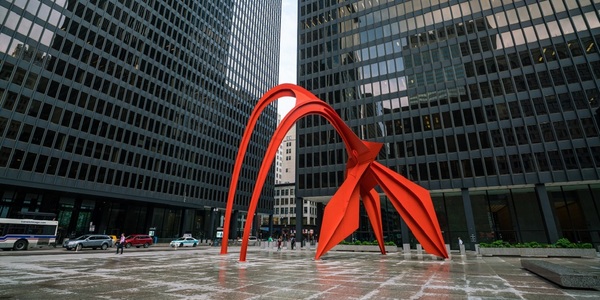A federal judge has signed off on a plan to award more than $4.8 million to attorneys who led a decade-long legal action against Sears and Whirlpool over allegedly defective washing machines the retailer sold.
On Sept. 13, U.S. Magistrate Judge Mary M. Rowland approved the attorney fees, as the latest step in the execution of a settlement deal
intended to end the litigation, launched in 2006 on behalf of a class of potentially hundreds of thousands of people who bought from Sears and then paid to repair the Kenmore- and Whirlpool-brand washing machines at the heart of the action.
The lawsuit had demanded Sears pay for selling the washing machines the plaintiffs claimed Sears knew would “repeatedly break down, do not
clean clothes effectively and otherwise fail to perform during normal home use.” The plaintiffs also claimed the machines’ defective design, which did not allow the machines to “circulate and drain completely,” allowed mold and mildew to grow inside the machines.
According to court documents, Sears and Whirlpool agreed, under the settlement, to pay anyone with valid claims – meaning someone who
could document their costs to fix the specific problem alleged in the lawsuit within three years of buying the machine.
While plaintiffs had indicated as many as 500,000 people could participate in the class action, in February, court documents reported more
than 10,000 people had submitted potentially valid claims, with an average paid claim amount of about $275.
This led Sears to estimate claimants would likely receive a total payout of as much as $890,000.
While the judge signed off on the bulk of the deal in February, she withheld approval of a request from plaintiffs’ attorneys’ for
more than $6 million in legal fees and costs.
The plaintiffs were represented by attorney Steven A. Schwartz, of the firm of Chimicles & Tikellis, of Haverford, Pa., and James Rosemergy, of the
firm of Carey, Danis & Lowe, of St. Louis.
Sears had contended the attorneys’ fee request was out of proportion to the rest of the settlement, and that the plaintiffs’ lawyers should not
receive more than what all claimants could be expected to receive. They argued the fee award should not be based solely on how much time plaintiffs’ attorneys can reasonably claim they worked on the case, but also how much money and other awards they actually obtained for those they were representing.
In her Sept. 13 decision, Judge Rowland rejected the defendants’ request to base legal fees on the amount the class members would
receive, saying there was no evidence plaintiffs’ lawyers would be “compensated at the expense of the class members.” She noted both sides had agreed on the terms of the settlement deal, before attorney fees were determined. And, she said, the class members with valid claims received the full amount of their reported repair costs, and were “enjoying a ‘substantial recovery.’”
Rather, she said the correct approach for determining attorney fees in this case would be the “lodestar” method, which uses the attorneys’ billing records to determine a base amount of attorney fees.
Plaintiffs attorneys had attempted to set the “lodestar” at $3.25 million, reflecting 6,134 total hours of work on the case, and then apply
a multiplier of 1.85, bringing the total request to $6 million.
The judge, however, adjusted the lodestar down to about $2.73 million, and awarded a multiplier of 1.75, bringing the total fees award to
$4.77 million. She based the multiplier on certain “circumstances,” including “the high degree of success, the vindication of a public interest, (and) the
presence of novel and complex legal issues,” which required more work from the legal team representing the plaintiffs.
“Given that the most important factor is the ‘results obtained,’ class counsel is entitled to a significant lodestar enhancement,” the judge wrote.
Rowland also awarded costs of $167,717 to the class counsel.
Sears and Whirlpool were represented in the action by attorneys from the firms of Wheeler Trigg O’Donnell, of Denver, and Barnes & Thornburg, of Chicago. Whirlpool was represented individually by the firm of Bartlit Beck Herman Palenchar & Scott, with offices in Chicago and Denver.
Source: cookcountyrecord.com




